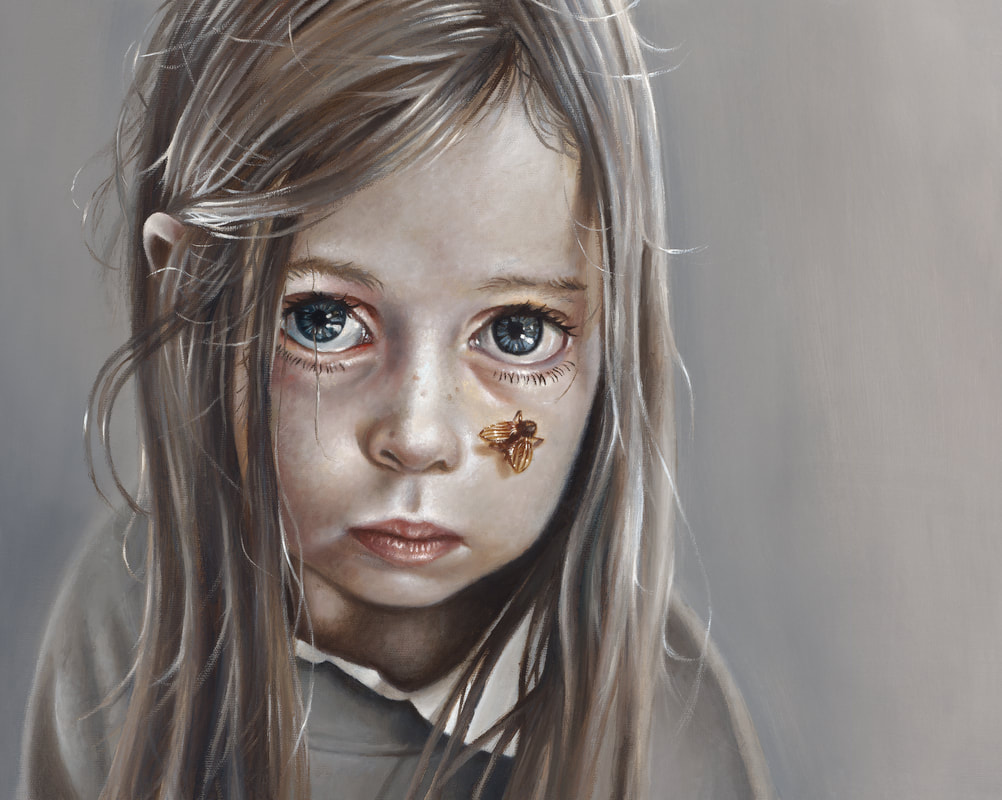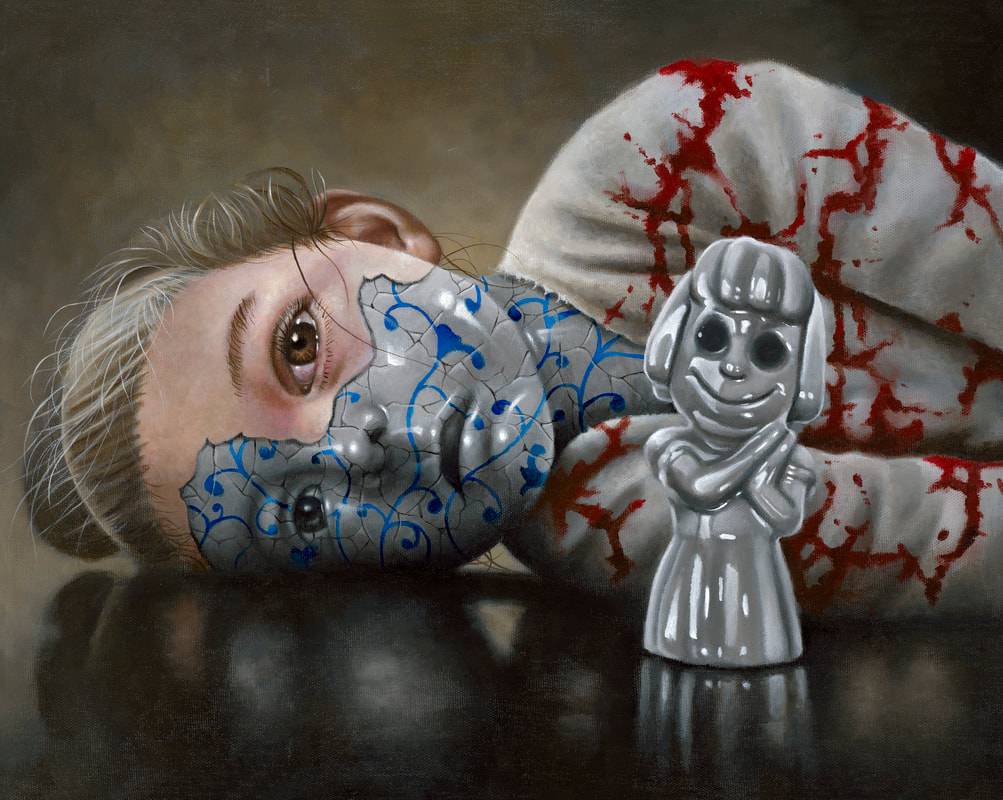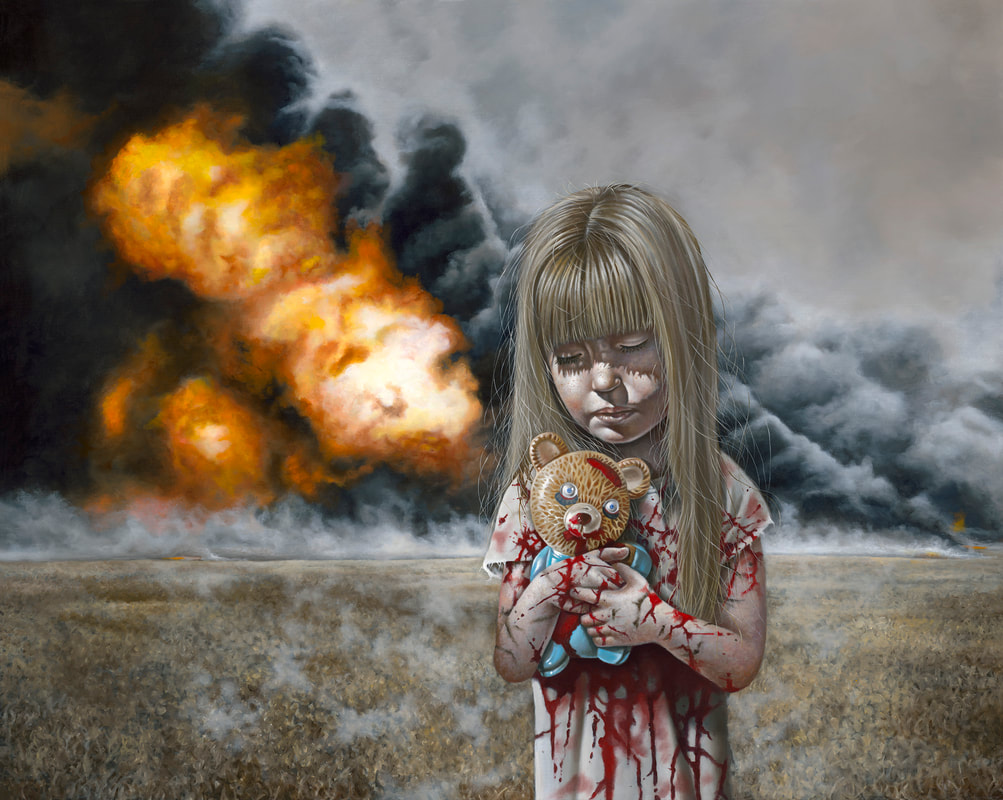|
CONTRASTS OF LIGHT AND DARK, ALONG GOOD AND EVIL, PLAY AN IMPORTANT ROLE IN THE PAINTINGS OF THE DANISH ARTIST HANS HENRIK FISCHER.
CARMEN HUST | ARTICULATE #24 | JULY 2020 The main subject of Danish artist Hans Henrik Fischer (b. 1978) are children and a general theme of innocence. Innocence being lost or corrupted by growing up. Fischer finds it interesting to investigate if we are born pure and get corrupted by outside influences, or if evil is something you're born with. There are other topics in his work, but that seems to be the main thing. He can't say why, but that's what he seems to return to.
Fischer’s preferred media is acrylic paint on canvas, although he does use oil once in a while. He has also exhibited illustrations with charcoal and chalk, but his main medium is acrylic paint. His paintings are a construct of many thin layers, which works better with acrylic since the older layers shine through and hopefully adds more depth to the final work.
|
The works of Hans Henrik Fischer are pre-thought, but they have to get up on the canvas first before he can judge if he thinks it works or not. He cancels around 50% of his paintings when they get transferred from the sketch book to the canvas.
The subjects start with an idea, then Fischer usually find a lot of different photo references, sometimes he takes the pictures himself, and sometimes the author is someone else. Then he mixes it all together, changing, adjusting and distorting things until it all works together, creating a good composition. In creating a good composition, Fischer follows the classical rules, but further dwells on the power of contrasts. |
The classical contrast of light and dark values, but also the contrast between the innocence of the children, and whatever else he places them in or with in the painting, along the contrast of the paintings looking “nice”, as in a certain beauty, even though the actual motive often can be unpleasant.
Hans Henrik Fischer has had a lot of different influences. Starting with cartoons, and then from art history. He believes the contrast of these two is a key part of his work. The influences vary and change over time for him. This article about Hans Henrik Fischer takes part of magazine, ARTICULATE #24. Read, download or order your print version of the full publication below
|
SUPPORTARTICULATE
www.articulate.nu SUPPORT Monday - Friday 8:00 - 16:00 [email protected] +45 30 48 19 81 Head Quarters VAT DK40953191 |
|







